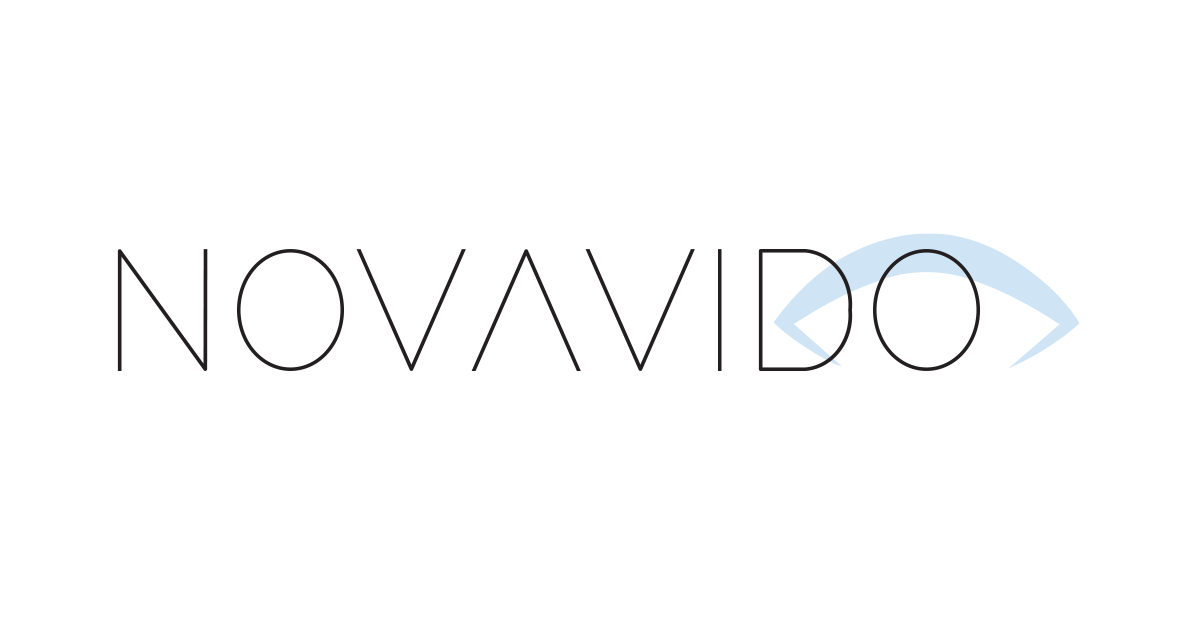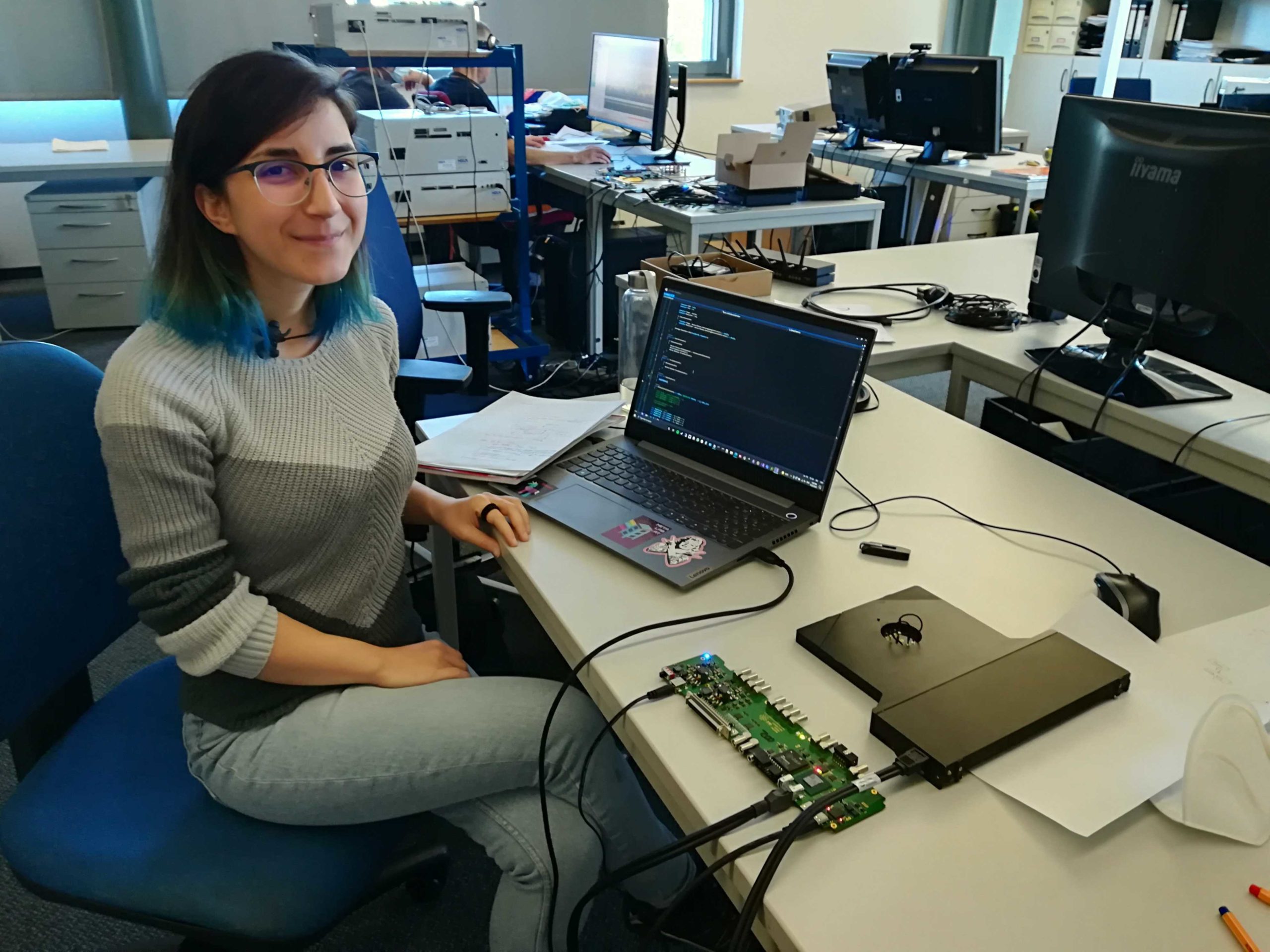ENTRAIN VISION
Secondments
Secondment means a period during which a ESR is hosted by a entity other than his/her employing institution.
Secondments can take place either in public or private organisations, in the same country as the host organisation or another, including outside Europe. However, the hosting organization must be part of the enTRAIN Vision network either as a beneficiary (employer of another ESR), or a partner organization.
During the period of the secondment the ESR will undertake a specific role. The Host Entity will provide the facilities necessary for the ESR to perform the tasks given for the duration of the secondment.
The enTRAIN Vision project, funded by the European Commission, aims to train a new generation of creative, entrepreneurial and innovative early-stage researchers in the crucial field of vision restoration.

ESR Name: Sandrine Hinrichs
Secondment host institution: Streetlab, Paris, France
Secondment period: 01/02/2022 to 28/05/2022
Secondment objectives: to use the artificial street facilities to determine the efficacy of the POLYRETINA implant in a real-life setup.
“Have you ever wondered how you would see the world as a blind person with a visual implant? In my secondment in the Paris Streetlab, I made normally sighted people go through this experience. My laboratory therefore developed an implant that aims to improve the vision, for instance by providing a wider field of view. To test whether this wider field of view makes a real change, we have been simulating this artificial vision so we can run virtual and augmented reality experiments on sighted participants. In this artificial street, participants were asked to start at their home location and to retrieve money from the ATM, to post a letter and to go back home as fast as possible. Participants saw the street through the lens of a blind person with the implant, where half of them were exposed to a field of view of 20° and the other half to 45°. Preliminary results indicate a difference in the performance, the time it took them to complete the tasks as well as the time they spent in dangerous locations.”

ESR Name: David Berling
Secondment host institution: UMH, Elche, Spain
Secondment period: 11/01/2022 to 13/03/2022
Secondment objectives: to record the neural response to optogenetic stimulation in single cells in cell culture and brain slices.
“Being a powerful tool to manipulate neural activity, optogenetic stimulation gains more and more importance for clinical applications in neural prosthetics. Major experimental research effort is being invested in the development of spatially and temporally precise illumination devices. However, there is a lack of quantitative understanding on how light source design and neural properties affect the effective spatial resolution of an optogenetic stimulation device. The secondment gave me the chance to set up experiments in cell cultures and brain slices, where the above-described effects can be investigated in a controlled environment.”

ESR Name: Samuel Virgili
Secondment host institution: Aalto University, Helsinki
Secondment period: 12/04/22 to 12/07/22
Secondment objectives: assess the role of the receptive field center and surround in the feature selectivity and information encoding properties of retinal ganglion cells.
” The visual information that enters the retina is encoded in spikes by the retinal output neurons (ganglion cells) and it’s transmitted to the brain. The spike activity of neighboring ganglion cells has been observed many times to be correlated. It is therefore interesting to investigate whether this correlation is beneficial or detrimental for the brain when it tries to decode the visual information from the spiking activity. Here we record four ganglion cells at the same time to investigate their correlation properties and we find that their electrical sub-threshold activity (current-based receptive field) is coordinated to maximize their functional overlap. In the future we will extend this analysis to both spiking activity and dendritic field structure, in order to link this overlap with information encoding properties and the neuron’s biological substrate.”

ESR Name: Luca Baroni
Secondment host institution: Femtonics, Budapest
Secondment period: 05/09/22 to 07/10/22
Secondment objectives: gain experience in 2P microscopy, specifically for calcium imaging data collections, gain deeper comprehension of the challenging and possibilities of experimental settings and collect dataset of responses to visual stimulation for future analyses.
“During my secondment at Femtonics I took the role of an experimental neuroscientist for a 5 weeks. Those workdays were quite different than my typical workdays as computational neuroscientist. I learned how to operate a 2P microscope and to perform in-vivo calcium imaging on Mice V1. I developed a stimulation protocol and collected and neural responses under visual stimulation. During the same period Marlene Pfeffer (an ESR from Benfenanti lab) was as well doing the secondment at Femtonics and we had a joint training, offered by Tamas Tompa, an application specialist of Femtonics.”

ESR Name: Fabrizio Grani
Secondment host institution: EPFL, Lausanne, Switzerland
Secondment period: 01/11/2021 to 31/01/2022
Secondment objectives: to optimize the design of the resonator coil of a wireless visual prosthesis.
“The future of cortical visual prosthesis are wireless implants. Power transmission and safety absorption rate are of fundamental importance when designing wireless systems. During this secondment I had the opportunity to face the challenges of wireless implants, from the design of a coil to its microfabrication in clean-room.”

ESR Name: Marlene Pfeffer
Secondment host institution: Novavido S.r.l, Italy
Secondment period: 03/01/2022 to 01/04/2022
Secondment objectives: to synthetize new photochromic molecules different synthesis parameters have to be taken into account and adapted in order to obtain the desired end result; to learn the fabrication steps involved in the synthesis of photochromic molecules and the different protocols used to characterize their biophysical properties.
“I had the unique opportunity to experience how a newly formed startup works and plans to further grow. Novavido S.r.l, Italy is a great example of how professional with different backgrounds can converge in one project and successfully work together. With the innovative idea of synthesizing membrane-targeted photochromic molecules, the company aims to restore light sensitivity in retinas missing photoreceptors due to degeneration and therefore recover the vision in the whole field of view. This short experience gave me the opportunity to work in a different work environment and to see the scientific world from a different point of view.”

ESR Name: Julie Zhang
Secondment host institution: Laboratory of Neural Engineering, EPFL, Campus Biotech, Geneva, Switzerland
Secondment period: 04/10/21 to 06/12/21
Secondment objectives: investigate the analysis of compound action potentials recorded in the optic nerve using a custom optic nerve implant ; compare the characterization results and the in vivo recordings of visually evoked potentials obtained with in-house EPFL mice and equipment with the ones obtained at IDV for the proof-of-concept study.
“For 2 months, I had the chance to take part in a small project at Ecole Polytechnique Fédérale de Lausanne in Diego Ghezzi’s lab, on neural signals recorded from the optic nerve. From the surgery to the actual data analysis, I worked hand in hand with Eleonora Borda (PhD) who mentored me and taught me a lot. I acquired more understanding in electrochemical tests, and more skills in terms of signal processing methodologies. Besides the work, I also enjoyed the general friendly, young and multi-cultural atmosphere in the team.”

ESR Name: David Berling
Secondment host institution: Instead Technologies for Helping People SL, Elche, Spain
Secondment period: 14/03/2022 to 14/04/2022
Secondment objectives: to test a simulation tool for optogenetic stimulation devices based on experimental.
“The secondment at Instead Technologies gave me the opportunity to experience vision restoration research in an industrial setting. I mainly worked on a previously developed computational model of optogenetic stimulation and prepared this model for a test against experimental data in the future. I further had the chance to test prosthetic devices which improve the life of blind people. I experienced myself how effectively such devices simplify tasks such as navigation in an unknown environment which further amplified my motivation to contribute to vision restoration research.”

ESR Name: Luca Baroni
Secondment host institution: Sinz Lab, Goettingen University
Secondment period: 15/03/22 to 04/06/22
Secondment objectives: develop deeper knowledge of DNN application to vision neuroscience, get in touch with latest development of encoding and decoding architectures of visual information in neural responses and develop DNN based model to identify invariance manifold of visual sensory neurons.
“The secondment at Sinz Lab was a great opportunity to further deepen my knowledge in DNN applications in vision neuroscience. Collaborating with Fabian Sinz and Mohammad Bashiri I developed a CPPN based method to identify and parameterize the set of stimuli that maximally excite neurons in V1. This method will allow us to better understand how visual information is encoded in V1 activity and will be informative for the development of future cortical stimulation protocols.”

ESR Name: Marlene Pfeffer
Secondment host institution: Femtonics, Budapest
Secondment period: 01/09/22 to 03/10/22
Secondment objectives: to learn the theoretical part of the most advanced multiphoton imaging systems available at the host institution; to use them in order to achieve independence in sample handling, performance of experiments, and data analysis; to study cellular processes in all three dimensions in the brain, as well as coupling multiphoton imaging with patch-clamp recordings.
“I had the great opportunity to do my secondment at Femtonics Ltd., in Budapest, Hungary.
There I could get a theoretical and hands-on training on the most advanced multiphoton imaging systems.
The team in Femtonics is very diverse and I had the possibility to learn from all of them and could observe them performing experiments with different goals and approaches.
I learned how to perform experiments using multiphoton microscopes in an autonomous and critical manner which will definitely help me in the continuation of my academic career.”

ESR Name: Jasnoor
Secondment host institution: Novavido S.r.l, Italy
Secondment period: 03/01/2022 to 1/04/2022
Secondment objectives: to learn the fabrication steps involved in the synthesis of polymeric nanoparticles using the reprecipitation method.
“I had the great opportunity to do my secondment at the young and dynamic startup Novavido S.r.l, Italy.
With the innovative idea of synthesizing a liquid retina device based on polymeric nanoparticles, the company aims to substitute photoreceptors damaged by retina degenerations and recover the vision in the whole field of view.
I learnt how to optimize the nanoparticle synthesis in an autonomous manner and got a chance to perform the physical characterization of the prepared batches.
This short yet meaningful exposure helped me to understand the basics of nanoparticle fabrication and allowed me to play with different parameters to tune their properties.”

ESR Name: Andreea Elena Cojocaru
Secondment host institution: Multichannel Systems GmbH, Germany
Secondment period: 18/10/21 to 17/12/21
Secondment objectives: develop a new feature which would allow for the presentation of multiple electrical stimuli within the same recording.
“My short stay at the Multichannel Systems’ software division was the first experience within a software development team. I had a great time there and, although the secondment was mostly remotely, during a short visit at the beginning, I could see the team spirit, joy for research and the readiness of the people working there to share their knowledge. The very careful supervision of dr. Patzwahl, his patience and dedication helped me improve my programming skill and showed me the process of writing elegant code. I am very grateful for this opportunity and I awe thanks to my PhD supervisor, professor Günther Zeck and dr. Janis Meents who made this internship possible and to the European Union and enTRAIN Vision program, for financing my stay at the company.”

ESR Name:Dharm Singh Yadav
Secondment host institution:Vision Institute-Sorbonne University Paris, France
Secondment period: 01/01/23 to 31/01/23
Secondment objectives: testing the symbiosis of degeneration between cone and retinal pigment epithelial (RPE) cells using an in-vitro co-culture model of cone degenerative molecules.
“The secondment at Vision Institute, Paris, was an exciting opportunity for me to learn about the latest research in the field of vision restoration. I worked as part of an ongoing project where we tested new degenerative molecules on co-cultures of retina and retinal pigment epithelial cells. The work was beneficial for my current project, and for that, I am thankful to Prof. Serge Picaud, Valerie Fradot, and Manon Leclercq (Ph.D. student) for their supervision and for providing a chance to work with them. I gained more knowledge about primary cell cultures and the implementation of new models for vision research. Besides, I enjoyed my stay, work, and friendly people in a beautiful and colorful city.”

ESR Name: Andreea-Elena Cojocaru
Secondment host institution: Vision Institute-Sorbonne University Paris, France
Secondment period: 09/01/23 to 09/03/23
Secondment objectives: to perform a series of experiments on optogenetically treated mice models using microelectrode arrays, combined with a light stimulation system, with the aim of evaluating the potential spatial resolution achievable and basic properties of the transduced cells, such as the size of their receptive fields.
“My short stay in Olivier Marre’s group was a beautiful encounter with another work style and scientific perspective. Although the experimental methods in the two labs (the home and the host institution) are similar, the way we see data and the kind of questions we ask are somewhat heterogeneous and helped me grow in this regard. The openness and willingness to share ideas my colleagues at Institut de la Vision have is building on the belief that science should be a common effort towards some fundamental truth and left me with an optimistic view on research in general.”

ESR Name: Fabrizio Grani
Secondment host institution: Vision Institute-Sorbonne University Paris, France
Secondment period: 01/05/23 to 01/06/23
Secondment objectives: to optimize the automatic detection of saccades in eye movement data.
“In order to evaluate the outcome of a visual task is important to classify and quantify the eye’s movements. During this secondment I faced the problem of detection and classification creating a ground truth dataset against which to check the performance of automatic algorithms.”

